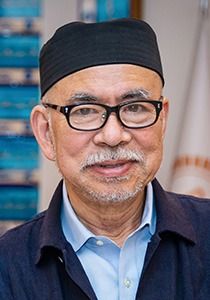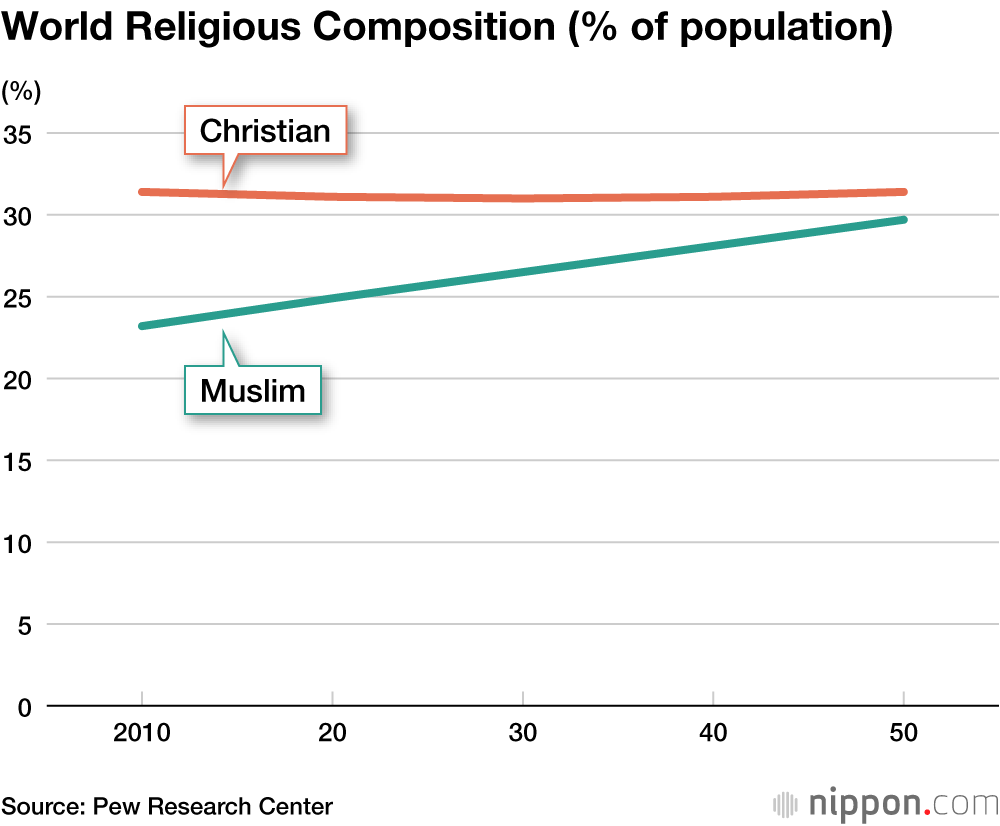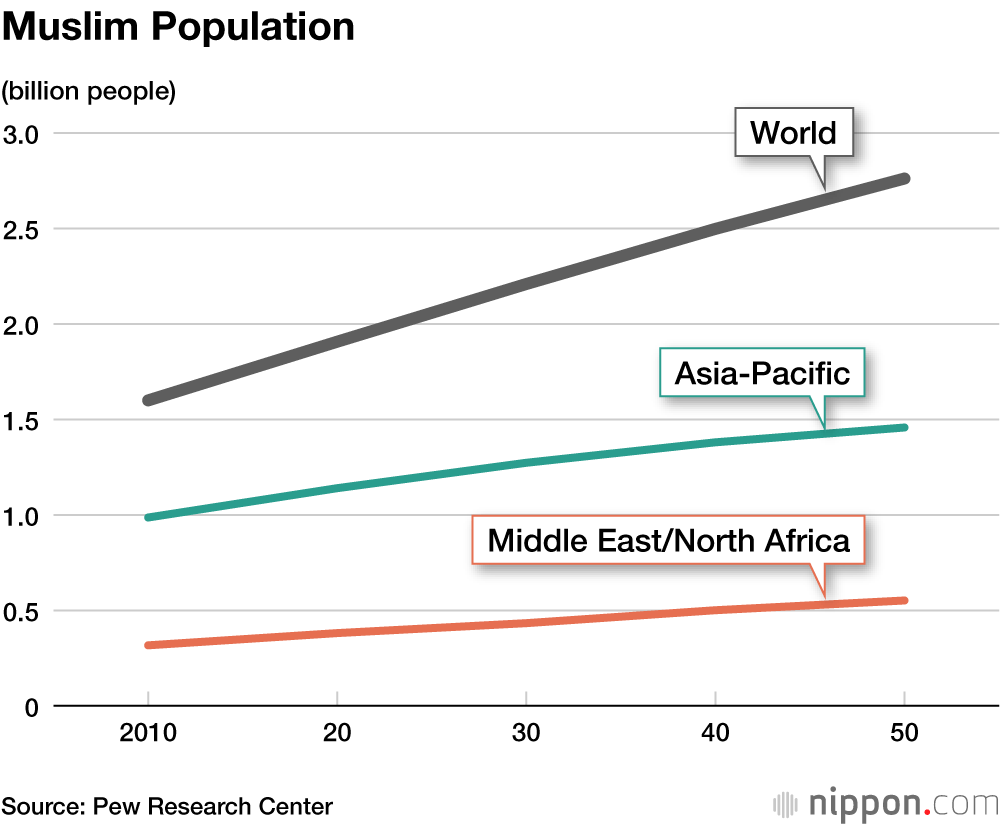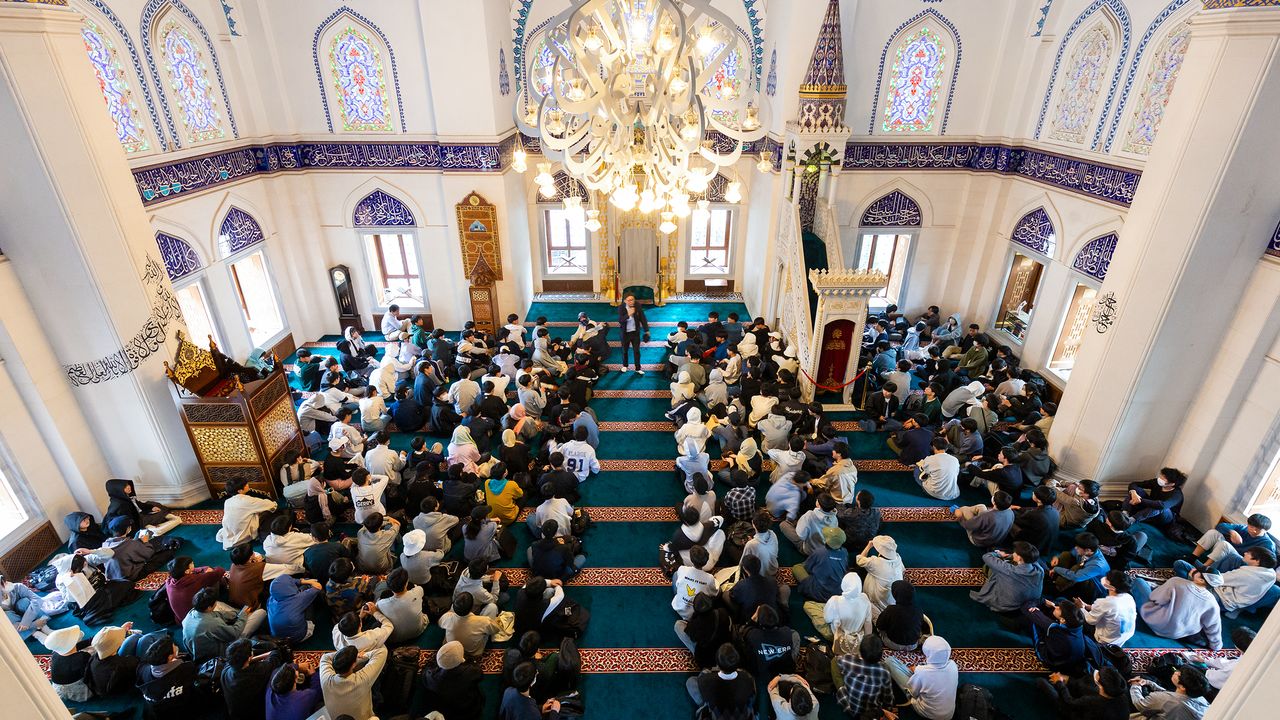
It Begins with Knowing: Ending Discrimination Against Muslims in Japan
World Society Global Exchange- English
- 日本語
- 简体字
- 繁體字
- Français
- Español
- العربية
- Русский
Fostering Curiosity
In a quiet residential district in Tokyo’s Shibuya City stands an eye-catching building with a dome and towering minaret. Known as Tokyo Camii, it is a mosque in the Ottoman Turkish style. It is a popular spot to visit even for non-Muslims, and the younger set comes for shots to post to Instagram. It also has a highly popular shop selling certified Halal products, which meet strict Muslim dietary rules.
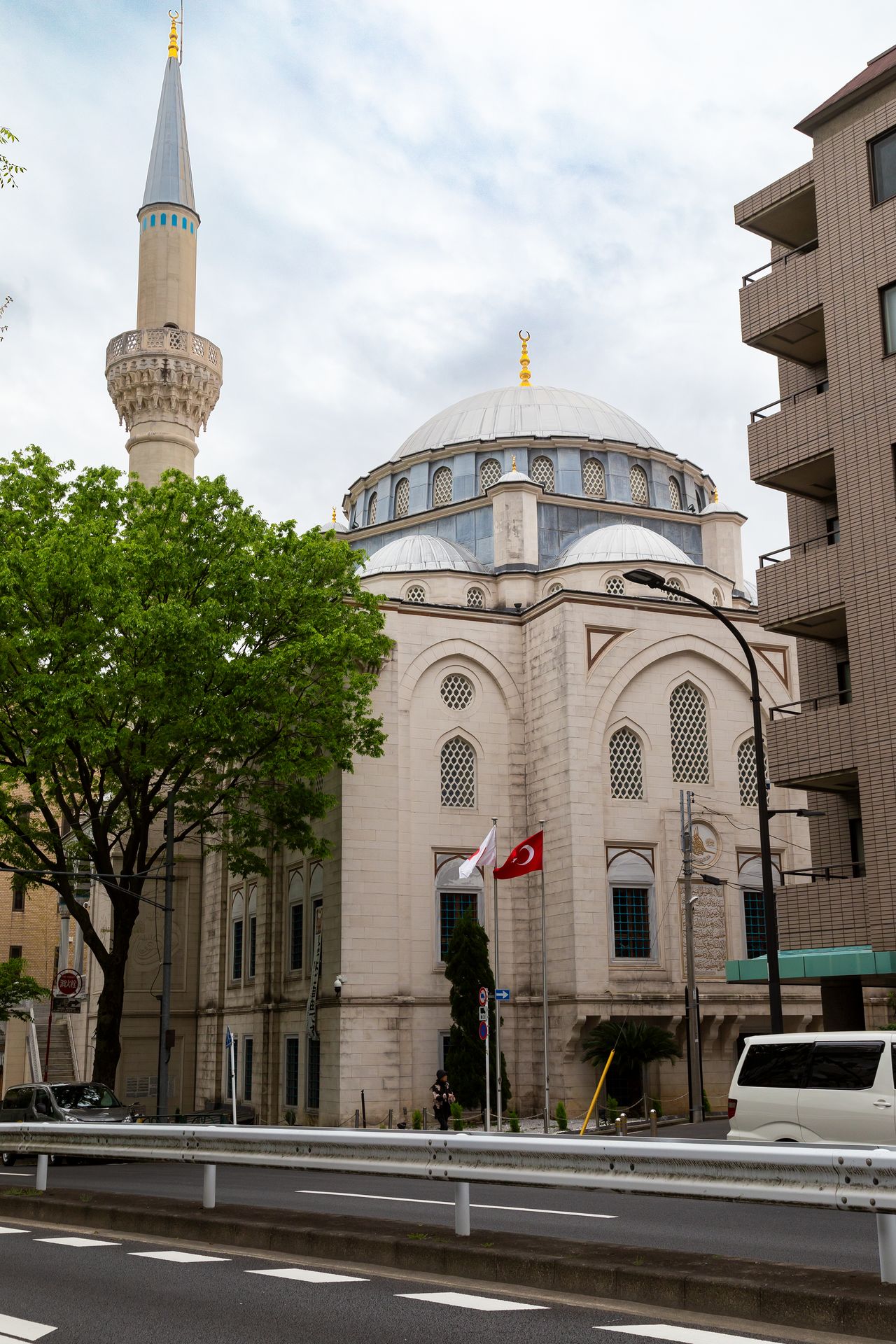
Tokyo Camii stands in a Shibuya residential neighborhood and is marked by its dome and elegant minaret. (© Nippon.com)
“We line up side by side during service because all humans are equal before God. It is a message that we must not discriminate,” explains Shimoyama Shigeru, Japanese Muslim and head of public relations for Tokyo Camii. His voice echoes inside the dome, decorated with beautiful stained-glass windows. He is explaining Islamic worship service and manners to a group of students from Ōmiya Kita High School in the city of Saitama, who came to learn about the faith in advance of a school trip to Malaysia and other places with large Muslim populations.
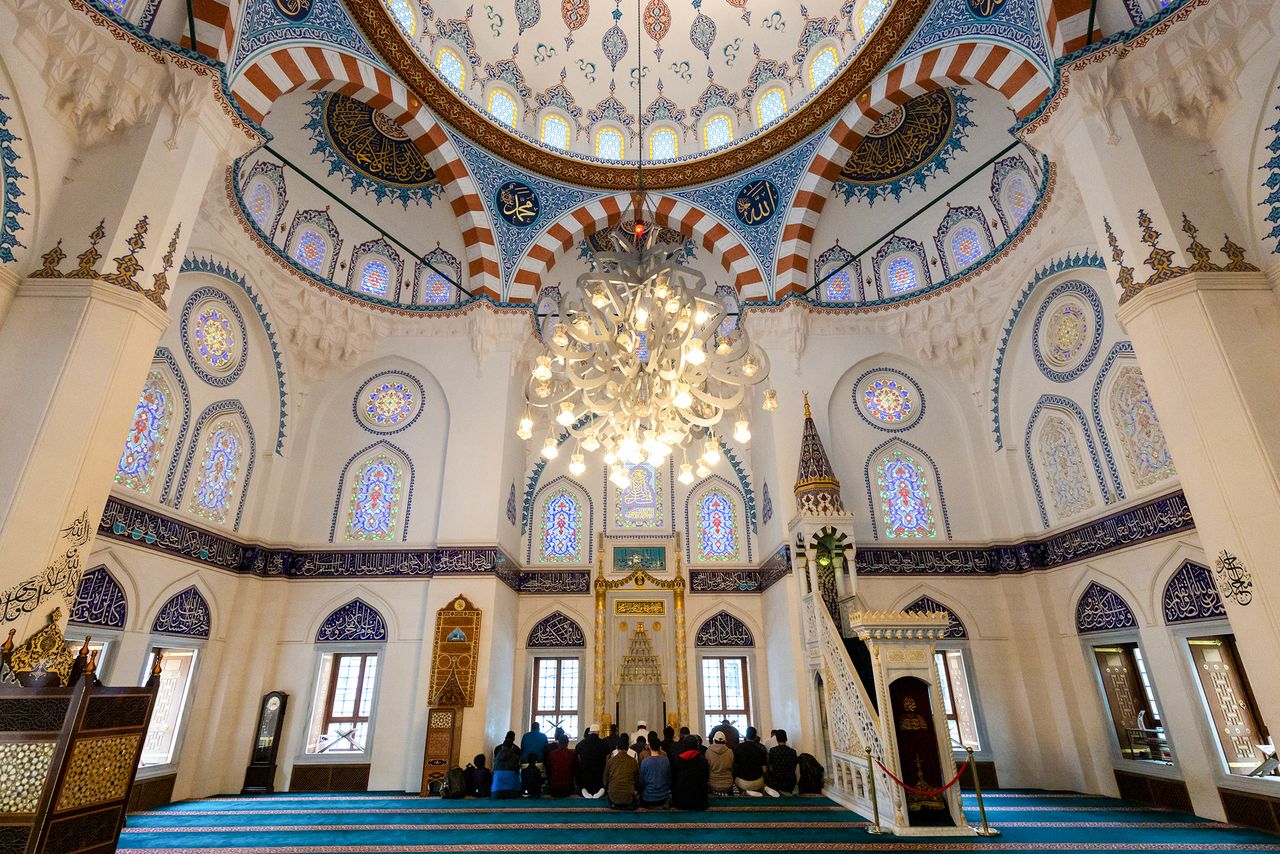
The dome at Tokyo Camii is adorned with stained glass and other decorations. (© Nippon.com)
He offers examples of familiar things with roots in Muslim culture, such as Arabic numerals or the principles of cameras, to draw the students’ interest. When their initial nervousness fades, he begins to talk about the historical background and worldview of Islam.
Shibata Yūma, a teacher accompanying the students, says, “I get the feeling that the students’ idea of Islam has changed.”
Sharing the Personal
Shimoyama’s consistent style of sparking interest by first getting people curious about Islam as a doorway to knowing it better was born of personal experience. When he was 19, he visited Sudan on a trip down the Nile with a Waseda University club. The modern tents and beds they had brought from Japan were simply not suited to the heat, and the students were forced to seek shelter with local villagers. They were welcomed openly, and when he learned that the kindness was based on the teachings of Islam, it shattered the idea he had had that Islam was a frightening, strict religion.
After he returned to Japan, the more he learned about Islam the more he felt he wanted to spread that knowledge with others. He joined the faith when he was 27. “I wanted to share the personal experiences I had when coming into contact with the Islamic world with other Japanese people.” As he read literature and trained in worship and fasting practices, he discovered changes in his body. “The construct of religion, which I had once disliked so deeply, was truly something wonderful; this knowledge began to emanate from within me. I felt that I was growing stronger through faith.”
The powerful emotions born of those experiences have not faded even at the age of 75. “That is why I am still in training. I’m experimenting to see if this global religion of Islam can touch the hearts of Japanese people.”
A Growing Muslim Population
According to a survey by Waseda University Professor Emeritus Tanada Hirofumi, an expert on Islam in Japan, there were 230,000 Muslims living in Japan in 2020—around one in every 500 people, and double the number 10 years before. Among them, around 47,000 have Japanese citizenship. Mosques are being built across the country and have increased from only 15 in 1999 to 133 as of April 2023.
Tanada points out that the trend upward includes increases through marriage, birth, and religious conversion, and estimates based on the latest data that the population is now probably near 300,000.
Tokyo Camii is also seeing an increase in hosted marriage ceremonies and those for adopting the faith, as well as consultations from people contemplating conversion when marrying a Muslim. Such partners often hesitate to convert because of resistance from those around them, often due to anti-Muslim prejudice. In such cases, Shimoyama always says, “If you love your partner and feel you must become a Muslim, then do so. The reason you don’t take that step is your own prejudice. Before you become a Muslim, you must rid yourself of your prejudice against Islam.”
Although the number of Muslims in Japan is growing, Shimoyama sees lingering prejudice as tied to the 9/11 terror attacks, saying, “influence from the American media has sadly held back the Japanese people from a better understanding of Islam.” His ongoing efforts to increase understanding of the faith, eliminate prejudice and discrimination, and speak openly with the media is rooted in his awareness of that issue.
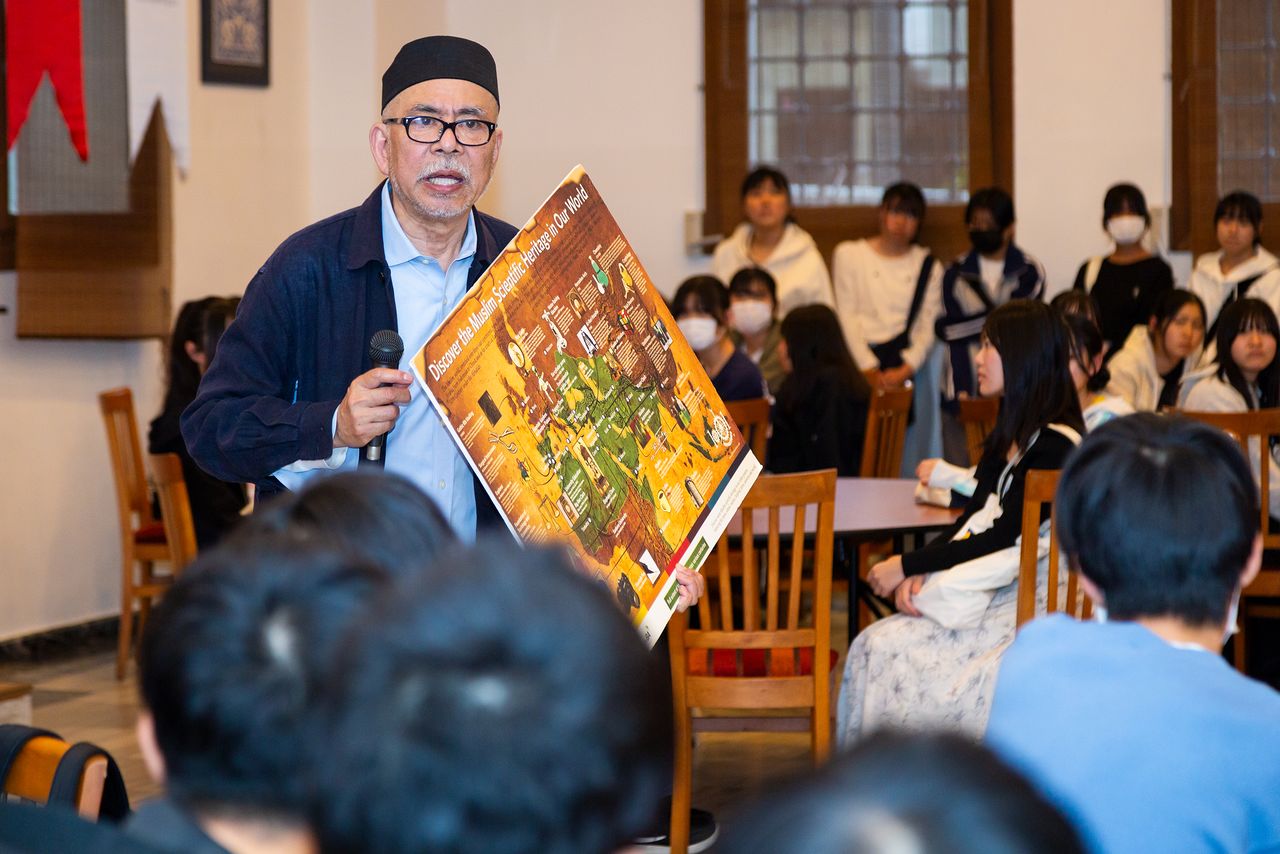
Shimoyama explains Islam to high school students visiting Tokyo Camii. (© Nippon.com)
Shimoyama holds particular hope that the younger generation of current high school and university students can do away with prejudice and discrimination. He says that in 2023, groups from 63 universities and over 100 high schools came to tour and study at Tokyo Camii. He says, “There are more and more students and teachers wanting to know about the Islamic world, which is globally important. They are coming to realize that not knowing the Islamic world means not knowing about the world in general.”
Becoming a Center of Faith in Asia
The growth of Islam is a global trend. According to data published by Pew Research Center in December 2022, the global religious composition in 2020 broke down to 2.38 billion Christians (31.1% of the world population) and 1.9 billion Muslims (24.9%). In 2050, Pew predicts the totals will be 2.91 billion Christians and 2.76 billion Muslims, or roughly equal.
By country or region, the number of Muslims in the Middle East/North Africa region was 381 million, while there were 1.14 billion in the Asia-Pacific region. There are now more Muslims in the Asia-Pacific region than the Middle East, where Islam was born. The number of Muslim visitors from Asia to Tokyo Camii has also grown dramatically over the last decade and is expected to keep doing so.
“Tokyo Camii is going to become a ‘Mosque for Asia’ where people from around the region can come and mingle,” Shimoyama says. As this area becomes a center for a global, ubiquitous faith, he has hopes that the role of Tokyo Camii will grow ever greater.
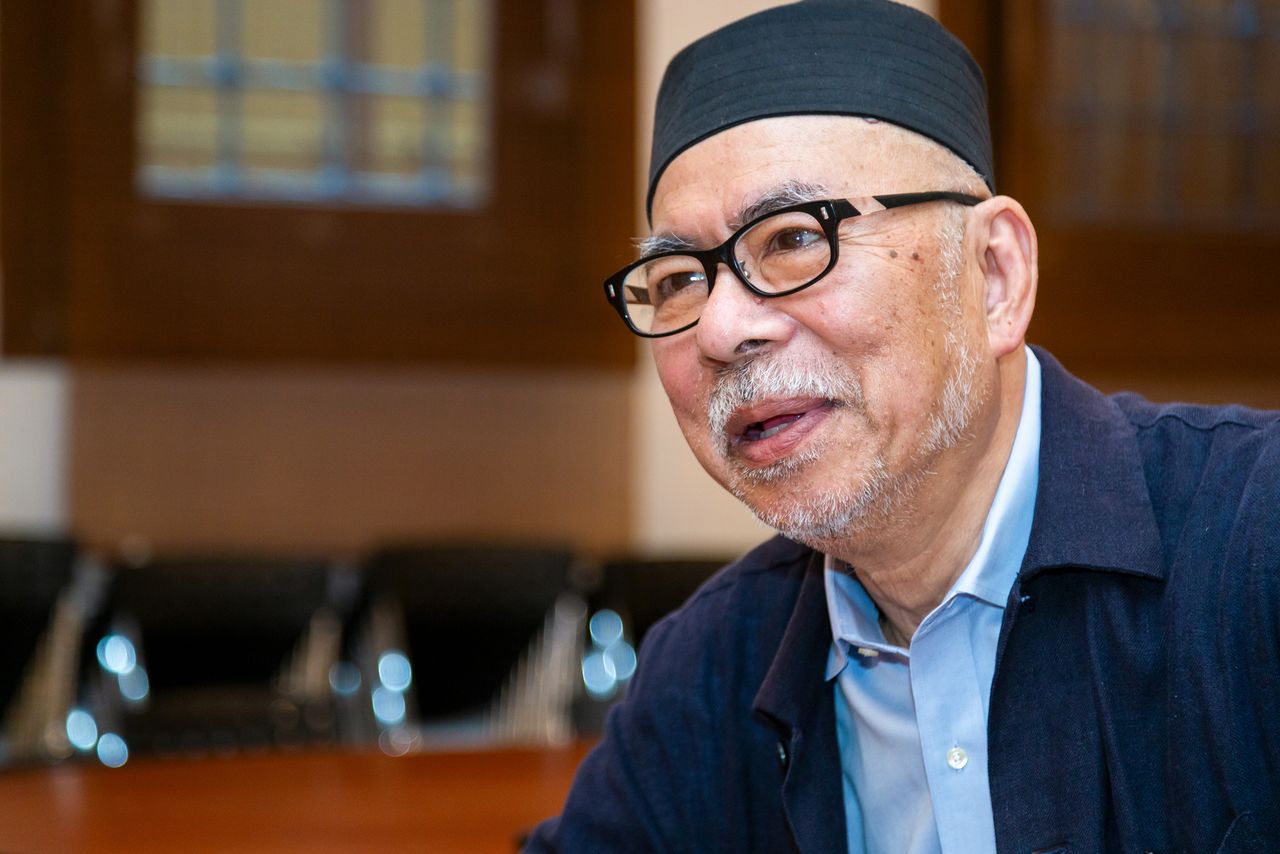
Shimoyama insists on the need for greater understanding of Islam. (© Nippon.com)
There is no knowing how deeply Islam will take root in Japan, but Shimoyama does see a need to share information about the faith here. “Ignorance breeds prejudice, and prejudice breeds discrimination. That’s what makes it important for Japanese people to better know Islam and be good partners going forward. I’m not saying I want everyone to convert. I simply want to nurture the perspective that people are all the same.”
(Originally published in Japanese. Banner photo: High school students listening to an explanation of Islam at Tokyo Camii. Taken April 18, 2024, in Shibuya, Tokyo. © Hashino Yukinori of Nippon.com.)

